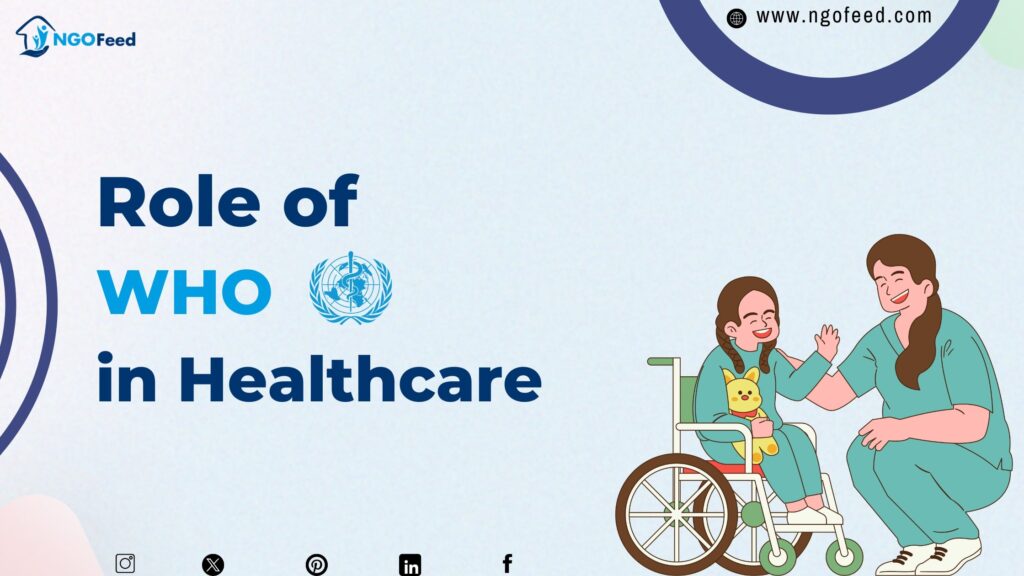The World Health Organization (WHO) is a United Nations specialized agency committed to global public health. Founded on April 7, 1948, with its headquarters in Geneva, Switzerland, WHO leads international efforts to enhance health, safeguard populations, and assist those most in need. The organization aims to realize its vision of a world where everyone has the opportunity to achieve optimal health.

WHO’s responsibilities include establishing health standards, orchestrating worldwide health initiatives, and offering technical support to nations. It is crucial in controlling and preventing disease outbreaks, formulating public health policies, and advocating for universal health coverage. Through research, advocacy, and collaboration, WHO addresses diverse health challenges, from infectious diseases to mental health, ensuring that health remains a key priority in global development. This article discusses the role of WHO in addressing healthcare-related matters.
Table of Contents
Global Health Leadership
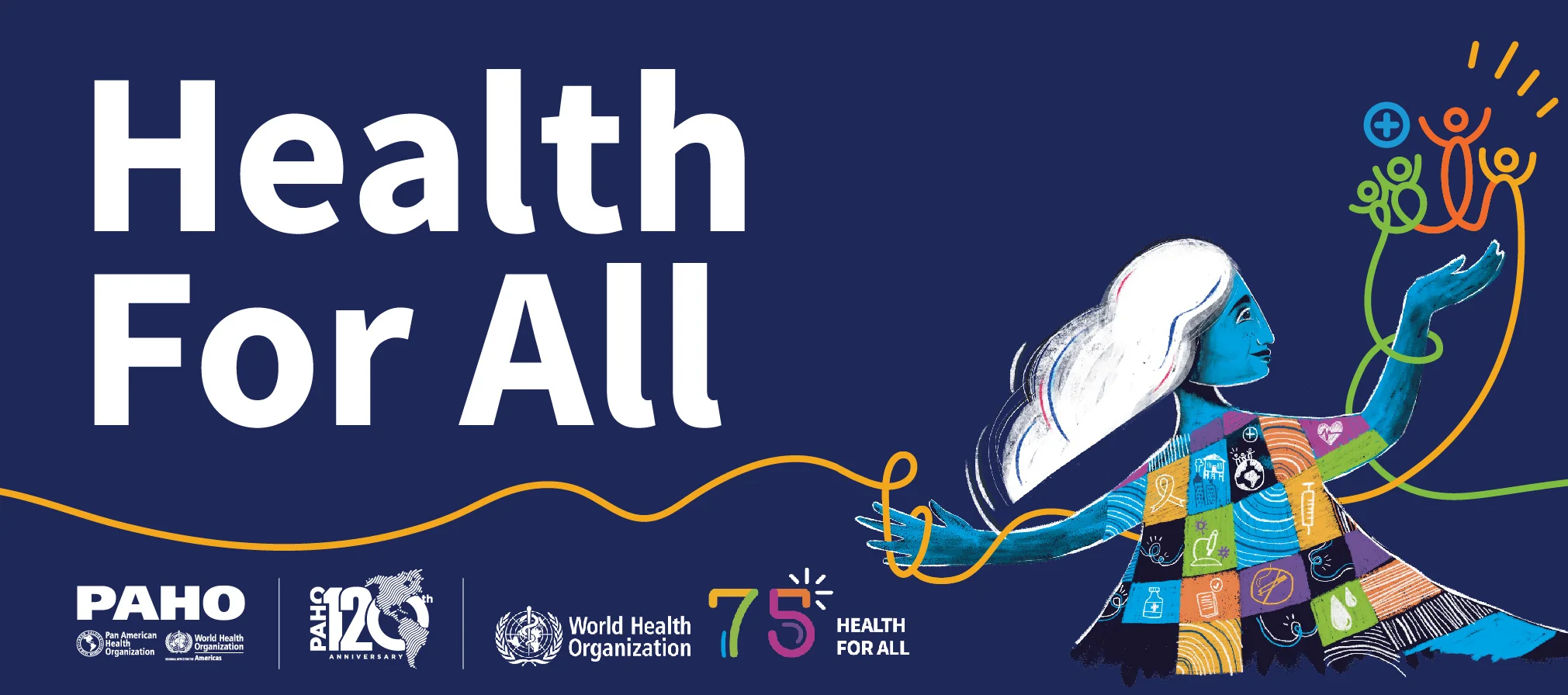
- WHO plays a critical role in setting global health standards and norms. It develops guidelines and recommendations for the prevention and control of diseases, nutrition, and healthcare practices, which are used by countries worldwide to formulate their health policies.
- In times of global health crises, such as pandemics, WHO coordinates international responses. It mobilizes resources, provides technical guidance, and facilitates collaboration among countries and organizations to address the health threat effectively.
- The WHO’s “Triple Billion Targets“ are a key initiative aimed at transforming global health by 2023. These targets focus on achieving universal health coverage for one billion more people, better protecting another billion from health emergencies, and improving health and well-being for a further billion. This ambitious plan is central to WHO’s efforts to advance global health and achieve the Sustainable Development Goals.
Disease Prevention and Control by WHO
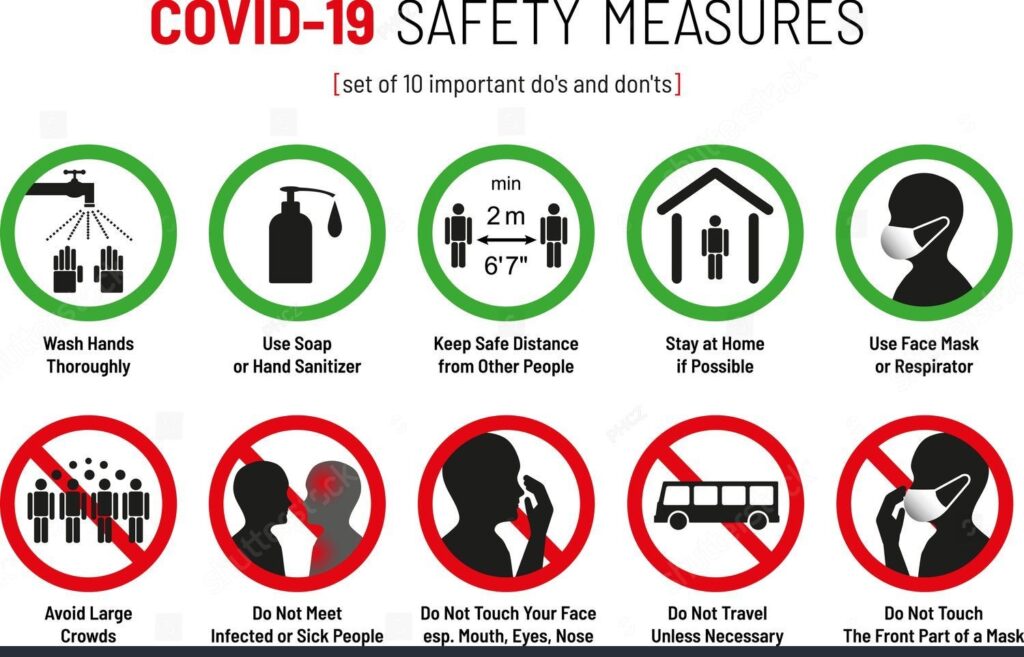
- WHO is at the forefront of managing global health emergencies, including epidemics and pandemics. It monitors outbreaks, provides rapid response teams, and supports countries in implementing measures to control the spread of diseases. WHO’s role was particularly evident during the COVID-19 pandemic, where it provided guidance on safety protocols, treatment options, and vaccination strategies.
- WHO coordinates global immunization efforts to prevent the spread of vaccine-preventable diseases. It plays a crucial role in the distribution of vaccines, particularly in low-income countries, through initiatives like the Expanded Programme on Immunization (EPI) and partnerships like GAVI, the Vaccine Alliance.
Health Policy and Guideline
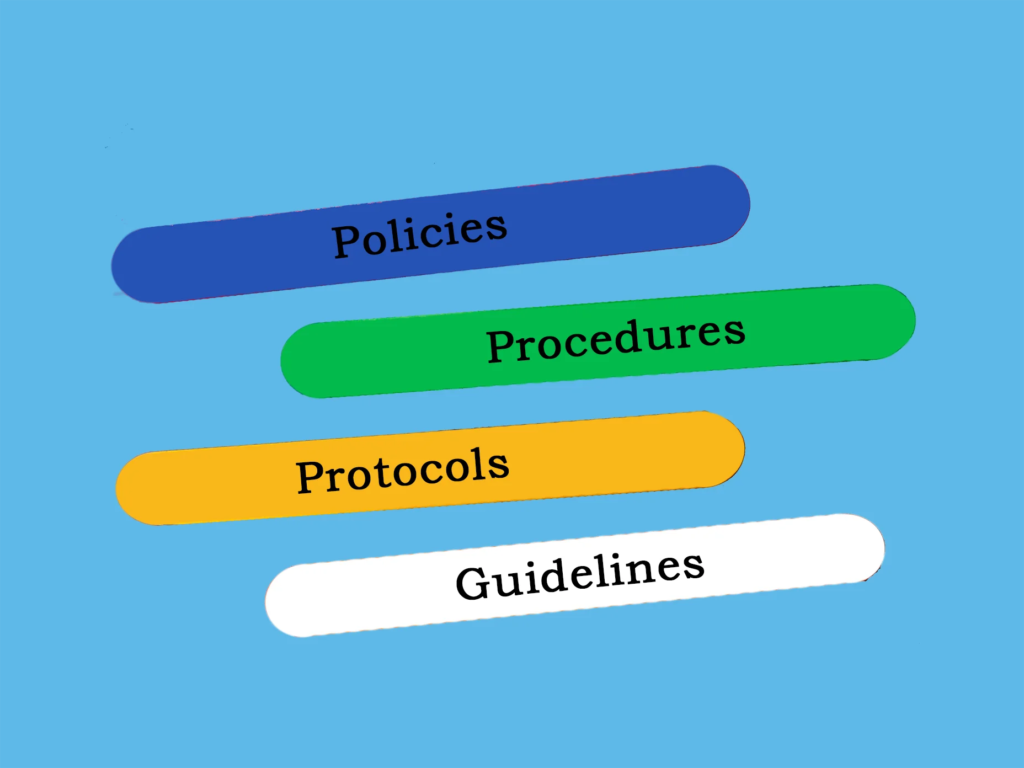
- WHO develops health policies based on rigorous scientific evidence. These policies guide countries in improving their health systems, addressing public health challenges, and achieving better health outcomes for their populations.
- WHO issues guidelines on a wide range of health issues, from clinical practices to public health interventions. These guidelines help standardize healthcare practices globally, ensuring that healthcare providers deliver high-quality care based on the latest evidence.
Health System Strengthening
- WHO works to strengthen health systems, particularly in developing countries. This includes improving healthcare infrastructure, training healthcare workers, and enhancing the management of health services. WHO also assists in the development of national health strategies and policies.
- WHO advocates for universal health coverage (UHC), ensuring that all people have access to the health services they need without suffering financial hardship. WHO supports countries in developing financing systems, improving service delivery, and ensuring equitable access to healthcare.
Research and Innovation

- WHO conducts and supports research that addresses global health challenges. It provides funding, facilitates international research collaborations, and disseminates research findings that inform global health policies and practices.
- WHO encourages the development and adoption of new technologies in healthcare. This includes digital health tools, diagnostics, and treatments that can improve health outcomes, particularly in low-resource settings.
Health Education and Advocacy

- WHO plays a vital role in raising global awareness about key public health issues, such as non-communicable diseases, mental health, and environmental health. It leads global campaigns, such as World Health Day, to highlight specific health issues and encourage action.
- WHO conducts educational campaigns aimed at preventing diseases and promoting healthy behaviours. These campaigns provide information to the public on topics like hygiene, nutrition, vaccination, and the risks of tobacco and alcohol use.
Emergency Response and Humanitarian AID
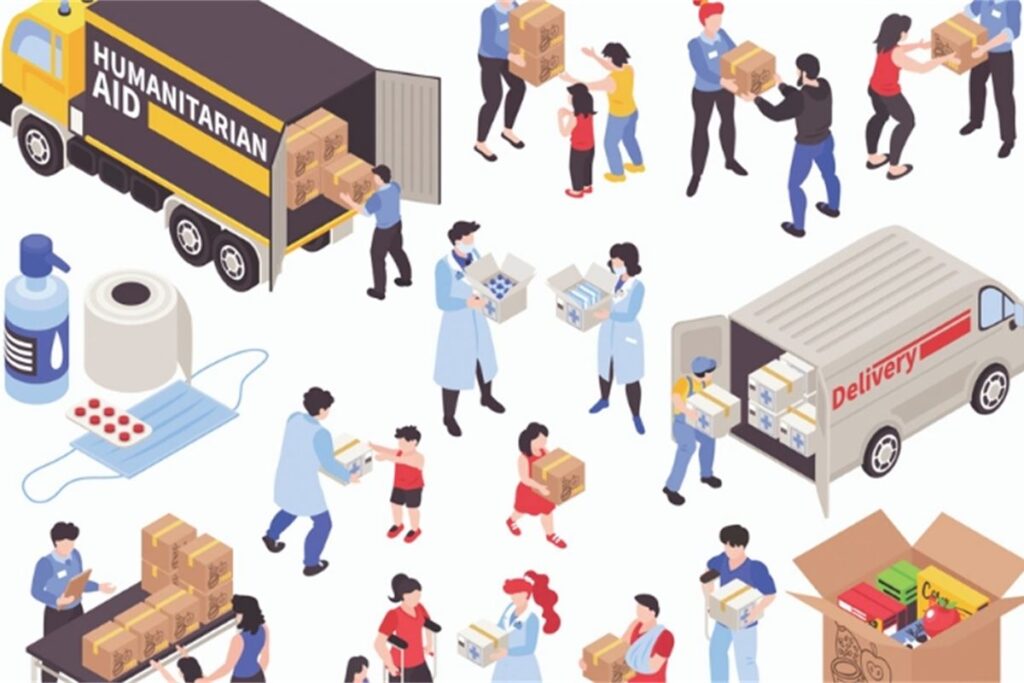
- In the aftermath of natural disasters and during conflicts, WHO provides emergency medical assistance, coordinates health relief efforts, and supports the rebuilding of health services. WHO also helps in the prevention and control of disease outbreaks that often follow such crises.
- WHO supplies essential medicines, vaccines, and medical equipment during emergencies. It also deploys experts to affected areas to provide technical support, assist in health assessments, and train local healthcare providers.
Collaboration With Other Entities
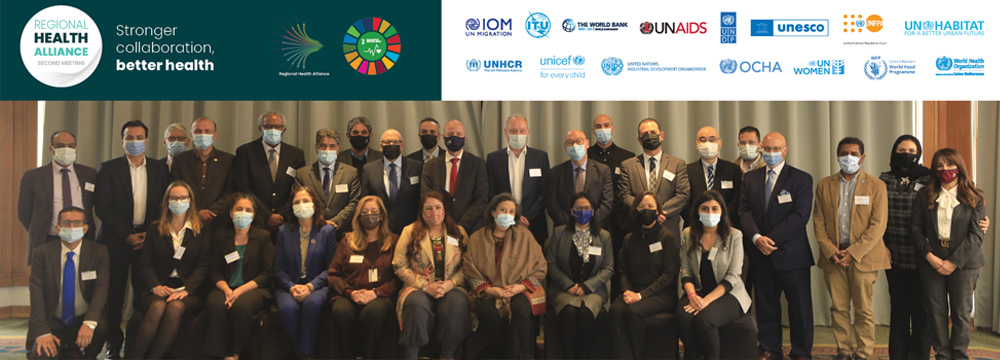
- WHO works together with governments, non-governmental organizations (NGOs), and the private sector to accomplish its health objectives. These collaborations are crucial for mobilizing resources, executing health programs, and reaching the communities that need support.
- WHO works closely with other international organizations, such as UNICEF, the World Bank, and the UN, to coordinate efforts on global health issues. This collaboration ensures a unified approach to health challenges, maximizing the impact of interventions.
Monitoring and Surveillance
- WHO monitors global health trends through data collection and analysis. It maintains databases on diseases, health systems, and other health indicators, which are crucial for tracking progress and identifying emerging health threats.
- WHO plays a key role in tracking global progress towards the health-related Sustainable Development Goals (SDGs). It provides reports and assessments that help countries understand their progress and areas needing improvement.
Challenges and Criticisms
- WHO often faces political pressures from member states, which can influence its decision-making processes and the implementation of its recommendations. This political influence can sometimes lead to delays in action or watered-down policies, as WHO must navigate the diverse interests of its 194 member countries.
- WHO relies heavily on voluntary contributions from member states and other donors for its budget, which can lead to financial instability and dependence on donor priorities. This reliance on external funding can limit WHO’s ability to pursue its own agenda and may result in uneven resource allocation, particularly when addressing less prioritized health issues. It has faced calls for greater transparency and accountability in its operations and decision-making. Critics have pointed out that some of WHO’s processes, particularly in relation to how funding is allocated and how decisions are made during emergencies, could be more open to scrutiny.
- WHO has been criticized for its bureaucratic structure, which can lead to inefficiencies and slow responses in emergency situations. The organization’s complex layers of administration and decision-making processes can hinder its ability to act swiftly, especially during health crises that require immediate action.
- Although WHO sets international health standards and guidelines, it lacks the authority to enforce them. Compliance with WHO recommendations is voluntary, and member states may choose not to follow them, which can undermine global health initiatives and efforts to control disease outbreaks.
- WHO’s regional offices sometimes operate with a degree of autonomy, leading to disparities in how health initiatives are implemented across different regions. This has led to criticisms that WHO’s efforts are not always consistent or equitable globally, particularly in addressing health disparities between developed and developing countries.
Conclusion
To strengthen its global health impact, WHO must enhance its agility in emergencies, invest in digital health technologies, and foster stronger partnerships with diverse stakeholders. Addressing funding constraints and improving transparency are crucial for sustaining its efforts. Despite challenges, WHO’s role in promoting health and responding to crises is vital. By continuing to evolve, innovate, and prioritize equity, WHO can ensure that all people, regardless of location, have access to the highest possible standard of health. Through these strategic actions, WHO will further its mission of safeguarding global health for all.
Frequently Asked Questions (FAQs)
1. How does WHO integrate global health strategies with national health policies?
Answer: WHO integrates global health strategies with national health policies by providing technical support and guidance to countries in aligning their health plans with international standards. This includes helping nations adopt WHO guidelines, implement best practices, and develop health policies that reflect global health priorities.
2. What mechanisms does WHO use to ensure effective collaboration with member states?
Answer: WHO employs various mechanisms to ensure effective collaboration with member states, including regular consultations, joint health programs, technical assistance missions, and multi-country initiatives. It also utilizes advisory committees, partnerships with regional organizations, and data-sharing platforms to foster cooperation and address health challenges collectively.
3. How does WHO measure the impact of its health interventions and programs?
Answer: WHO measures the impact of its health interventions and programs through rigorous monitoring and evaluation processes. This includes collecting and analyzing health data, assessing program outcomes against predefined indicators, conducting impact assessments, and publishing reports on the effectiveness and reach of its initiatives.
4. In what ways does WHO address health inequities across different regions and populations?
Answer: WHO addresses health inequities by focusing on strengthening health systems in low-resource settings, promoting access to essential services for marginalized populations, and implementing targeted programs to address health disparities. It also advocates for equitable resource allocation and supports initiatives aimed at reducing social determinants of health.
5. How does WHO adapt its strategies in response to emerging health threats and evolving global health trends?
Answer: WHO adapts its strategies by conducting continuous risk assessments, engaging in global health surveillance, and fostering innovation and research. The organization updates its policies and guidelines based on emerging evidence, integrates new technologies, and collaborates with experts to respond effectively to new health threats and evolving trends.
6. What role does WHO play in shaping international health regulations and standards?
Answer: WHO plays a crucial role in shaping international health regulations and standards by developing and updating frameworks such as the International Health Regulations (IHR) and other health guidelines. It works with member states to ensure compliance with these regulations, facilitating global coordination and standardization in health practices.
7. How does WHO ensure that its health policies and programs are evidence-based and scientifically sound?
Answer: WHO ensures that its health policies and programs are evidence-based by utilizing data from global health research, expert consultations, and systematic reviews. The organization employs a rigorous process for evaluating scientific evidence, engages in peer-reviewed studies, and collaborates with research institutions to inform policy development and program implementation.
8. What strategies does WHO use to enhance its operational efficiency and effectiveness in health emergencies?
Answer: WHO enhances its operational efficiency in health emergencies through streamlined response protocols, rapid deployment of emergency teams, and establishment of coordination hubs. It also invests in crisis management training, improves supply chain logistics, and develops pre-established partnerships to ensure swift and effective action during health crises.
9. What are the implications of WHO’s role in global health governance for national health policies?
Answer: WHO’s role in global health governance influences national health policies by providing technical guidance, setting international health norms, and offering support for policy development. This guidance helps countries align their health strategies with global standards and improve their health systems.
10. How does WHO’s strategic plan align with the Sustainable Development Goals (SDGs)?
Answer: WHO’s strategic plan aligns with the Sustainable Development Goals (SDGs) by focusing on health targets that directly contribute to SDGs related to health and well-being, such as reducing mortality rates, achieving universal health coverage, and addressing health disparities. The organization’s initiatives support the broader global agenda for sustainable development.

